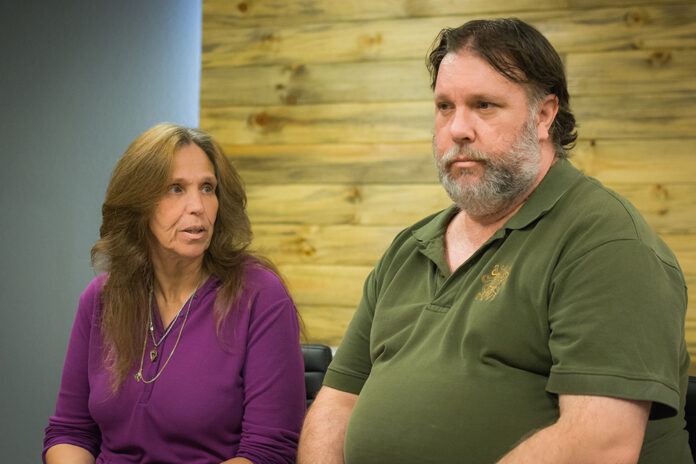
Addiction is a disease that does not often discriminate based on age or social strata.
Teachers have addicts for students. Students have addicts for teachers. Parents have addicts for children. Children have addicts for parents. Spouses have addicts as partners. And, sometimes, when you look in the mirror, an addict is staring right back.
For two Maricopa parents, the struggle to confront a loved one’s addiction left them feeling isolated. When Tina and Michael Hoehler finally realized their somewhat-guarded coping mechanisms weren’t working, they changed their approach.
The two had struggled with the harsh reality of loving an addict for several years, attending support groups like Al-Anon and Nar-Anon. But none of the tools they were taught or advice they were given provided them with that final piece to the puzzle they needed so desperately.
Then they found the program they said might have saved their loved one’s life – Parents of Addicted Loved Ones (PAL).
“It taught us how to set boundaries,” Tina said. “And how to stick by them.”
Soon after, they both saw how setting and enforcing those boundaries allowed their loved one to also make a change.
“When you begin to make changes, they see that and they change,” she said.
PAL not only helped them establish those boundaries, but it helped them open up and share their personal experience, they said.
It changed their mindset so much, they decided to bring PAL’s tenants of “education” and “support” to Maricopa.
“I wanted other parents to know that they’re not alone, and that’s exactly how you feel, alone.” Tina said. “Sometimes you choose it [to be alone], sometimes it just happens.”
Now, every Monday evening PAL meets “to receive support from, and give support to, others who are facing the same challenges.”
PAL is not unlike Al-Anon and Nar-Anon in that it provides a network and support. However, Michael said, PAL allows something the others do not – crosstalk.
“It allows people to have conversations, personal conversation,” Michael said.
One of the biggest differences, Tina said, is the education.
“I can spout off all statistics about drug abuse, but what good is that,” she said. “People need actual knowledge they can use.”
Each week, PAL offers lesson plans to provide attendees with tools to better understand themselves and, in turn, improve the lives of their loved-ones.
Lesson plans range from delayed emotional growth and transitional living to healthy helping and enabling.
“Understanding [these topics] is the difference,” Tina said.
For more information, visit PALgroup.org or stop by PAL’s weekly meeting on Mondays, 7-8:30 p.m., at 19395 N. John Wayne Parkway, Suite 16, on the second floor at the Maricopa Behavioral Health Services office.
This story appears in the November issue of InMaricopa.

![City gave new manager big low-interest home loan City Manager Ben Bitter speaks during a Chamber of Commerce event at Global Water Resources on April 11, 2024. Bitter discussed the current state of economic development in Maricopa, as well as hinting at lowering property tax rates again. [Monica D. Spencer]](https://www.inmaricopa.com/wp-content/uploads/2024/04/spencer-041124-ben-bitter-chamber-property-taxes-web-218x150.jpg)

![3 things to know about the new city budget Vice Mayor Amber Liermann and Councilmember Eric Goettl review parts of the city's 2024 operational budget with Mayor Nancy Smith on April 24, 2024. [Monica D. Spencer]](https://www.inmaricopa.com/wp-content/uploads/2024/04/spencer-042424-preliminary-budget-meeting-web-218x150.jpg)
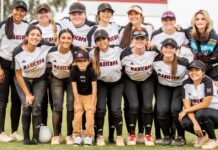

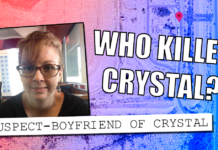

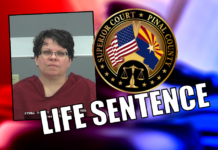
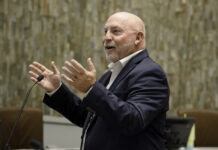


![Alleged car thief released without charges Phoenix police stop a stolen vehicle on April 20, 2024. [Facebook]](https://www.inmaricopa.com/wp-content/uploads/2024/04/IMG_5040-218x150.jpg)

![City gave new manager big low-interest home loan City Manager Ben Bitter speaks during a Chamber of Commerce event at Global Water Resources on April 11, 2024. Bitter discussed the current state of economic development in Maricopa, as well as hinting at lowering property tax rates again. [Monica D. Spencer]](https://www.inmaricopa.com/wp-content/uploads/2024/04/spencer-041124-ben-bitter-chamber-property-taxes-web-100x70.jpg)

![3 things to know about the new city budget Vice Mayor Amber Liermann and Councilmember Eric Goettl review parts of the city's 2024 operational budget with Mayor Nancy Smith on April 24, 2024. [Monica D. Spencer]](https://www.inmaricopa.com/wp-content/uploads/2024/04/spencer-042424-preliminary-budget-meeting-web-100x70.jpg)
